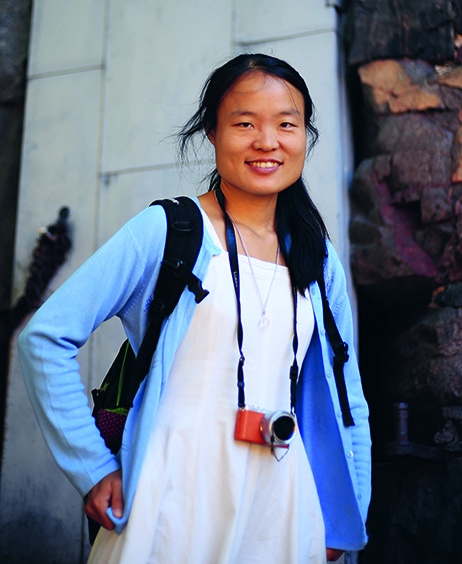
Trouble with residence permits?
Doctoral researchers from outside the EU foresee no relief from bureaucracy.
Teksti Terhi Hautamäki kuvat Mikkö Törmänen / Veikko Somerpuro / Chi-Yun Chen

Marian Tumanyan, project coordinator, doctoral researcher, University of Oulu
“I have been living in Finland for 6 years. I have had several small grants for my research and applied for short-period residence permits. In some cases, I needed to travel from Oulu to Rovaniemi, as Migri didn’t have available booking times in Oulu.
Some doctoral researchers have Finnish spouses and apply for a residence permit based on that, as it is easier to get longer-term permits that way. Other researchers have an employment relationship other than grants, which is also helpful.
The good way of dealing with this situation would be giving doctoral researchers at least a 4-year A-type residence permit, not depending on their funding situation. It would save their time, resources, and finances and make living in Finland less stressful.”
The good way of dealing with this situation would be giving doctoral researchers at least a 4-year A-type residence permit, not depending on their funding situation.
Marian Tumanyan

Amiirah Salleh-Hoddin doctoral researcher, University of Helsinki
“I came to do my master’s degree 8 years ago, worked in Finland and started my PhD in 2019. I only got my permanent residence permit last year. Having to renew it every year takes not just financial capacity but mental and emotional as well.
I would have appreciated it if my boss, colleagues or HR people would have asked how they can support me. I also felt pressured by the university HR because the Migri process took so long. When I was selected for the Obama Leader program for my anti-racist activist work, the university was quick to interview me and ‘claim´ me as proof of their international diversity, but at the same time I was not getting the support I needed to actually stay.
If you want to attract non-EU people to do research in Finland, there needs to be a structural change.”
f you want to attract non-EU people to do research in Finland, there needs to be a structural change.
Amiirah Salleh-Hoddin

Chi-Chuan Chen, doctoral researcher, University of Helsinki
”I first arrived in Finland in 2014 for doctoral studies. I got the temporary residence permit type B and needed to renew it every year until the 2019 type A was granted. It was not only time-consuming but cost money.
Because of research needs, I had a one-year research visit to my co-supervisor’s laboratory in China. When I came back I couldn’t renew my residence permit, but I had to apply for a new one.
Applying for a residence permit should be more flexible. The limitations may influence international mobility.”
Applying for a residence permit should be more flexible.
Chi-Chuan Chen
A government proposal submitted in December would ease entry for foreign undergraduate students. Doctoral researchers, however, should continue to renew their residence permits after each funding period.

